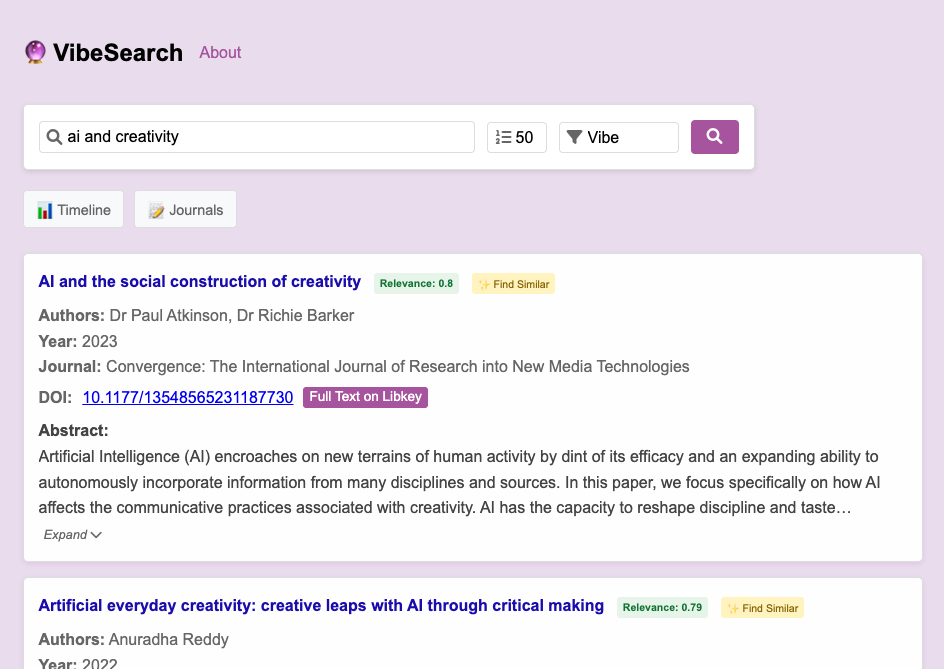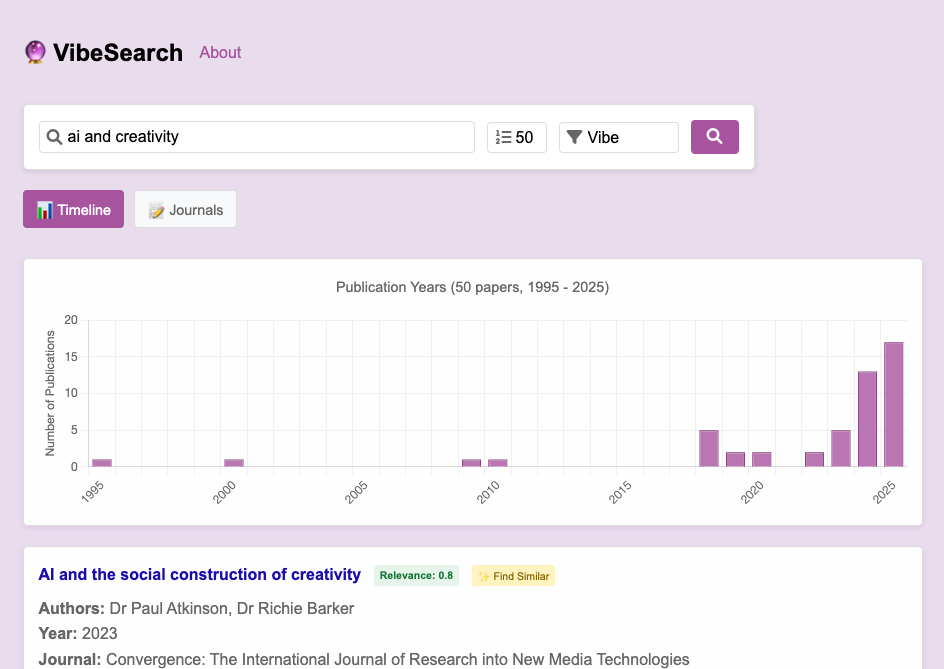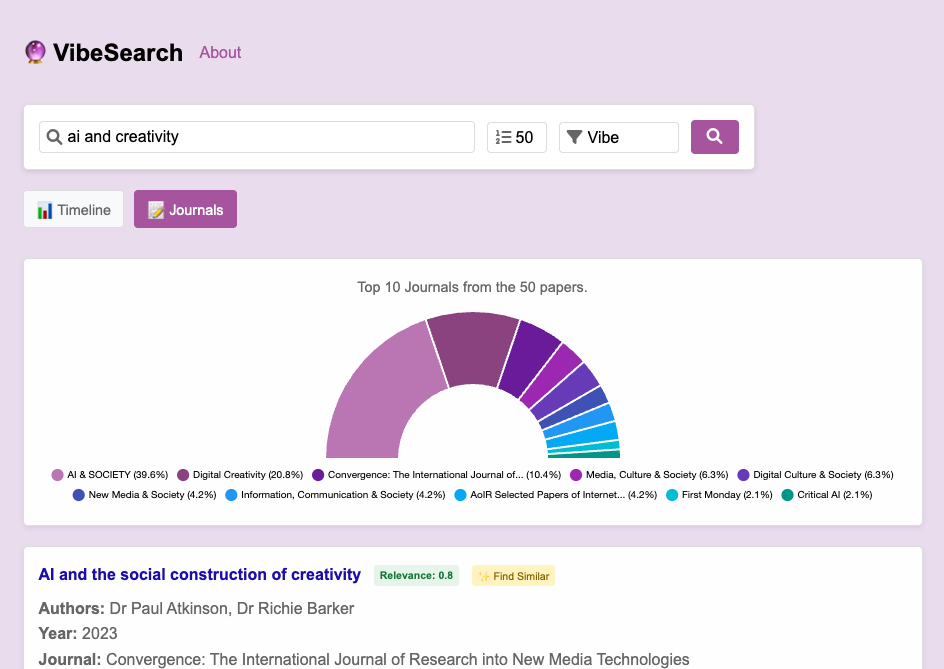Vibes x Small AI
In the current Generative AI (GenAI) boom, the scale of computation is increasingly massive. GenAI models for creative practices, such as Midjourney and Dall-E, are now being trained on billions of image-text pairs. The rise of such “scaled-up” algorithmic systems is already reshaping social life—from how creative work is conducted and valued to outsized environmental impacts, as the AI industry’s energy consumption reaches a yearly amount equivalent to Belgium.
I am interested in exploring how we may develop practical alternatives to the dominant paradigm of massive scale in GenAI. This builds upon previous research on “antagonistic algorithmic media”, “slow AI” and “minor tech”. These alternatives may be produced by community-oriented bottom-up actors, offering alternative paradigms and imaginaries for how GenAI may be conceptualized and used.
I currently use critical making to develop “provotypes”, technical experiments that are both 1) useful for a small community to do something; and 2) enable critical debate and reflection on small-scale and situated GenAI itself. So far, I am excited by how this situated approach to GenAI supports academic and creative practices, enabling a more sustainable and responsible approach to computation.
🔮 VibeSearch
VibeSearch is a vibe-y search engine for academic articles in New Media (broadly defined). It works on a database of 44k articles from journals in the field. It uses vector search (basically LLM for information retrieval) to find articles based on the search prompt. With this, it finds similarity not just through the words, but the general meaning of the prompt (that’s the ‘vibe’ part). You can also use an article title as a search query to find similar ones.
It’s a provotype developed for the Media Studies BA students at the University of Amsterdam, as they sometimes have trouble finding resources from our field. However, as I was making it, I realized in fact the issue is that the current search engines are not very good—e.g. they often broaden out the search field too much to journals in other disciplines, such as Psychology. And then the alternative of searching individual journals is pretty bad, and biases towards the big publishers…
The thing itself runs pretty small, with all database and computation on my server—so no API calls, trackers, or Big Tech shenanigans. It could also run on you computer locally, as it is open source… So, if you wish, you could also build/host your own database of journals… It’s a provotype, so happy to hear what you think!
The project is available on: vibesearch.latentspaces.online/
An article on this project, co-authored with Steve Jankowski, is forthcoming. In it, we discuss the idea of AI-supported critical technical toolcraft: how we need better sociotechnical arrangements that enable us to use AI to develop local tools.
Vibe-Mapping New Media: Exploring the Field with Small LLMs (DMI Summer School ‘25)
Using the data collected for VibeSearch, I co-facilitated a DMI Summer School group. The project mapped the evolving landscape of New Media Studies over the past 25 years by combining semantic clustering, topic modelling, and narrative synthesis—developed through a locally-run small language model. Drawing inspiration from handbooks like Keywords for Studying Media, Culture & Information and Critical Terms for Media Studies, alongside an interest in AI-assisted methods for topic modelling, we inductively constructed a field guide from 28,624 articles, identifying key conceptual formations and their changing prominence over time. We were particularly interested in mapping not just stable concepts, but dynamic thematic patterns and cultural formations—what we provisionally refer to as “vibes.”
The full write-up is available on the DMI Wiki.
VibeTranslate
Another experiment is a tool for local AI-assisted translation in academic events. It allows a spectator to type up what a presenter is saying, which is automatically translated and displayed for the audience (either through the phone or a projector). It all runs on a laptop, completely locally. I plan on testing it out in future multilingual events.
This project was developed with support from the TLC & IIS Responsible AI IP theme grant 2024.


